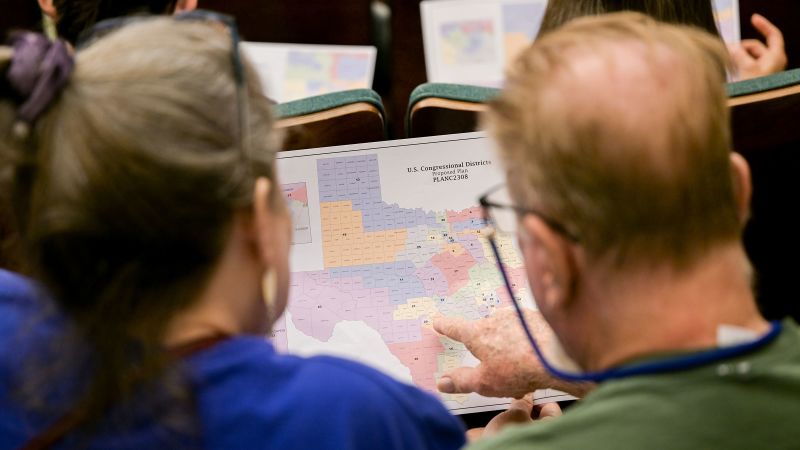
Texas Republicans Redraw Congressional Districts: Implications of Gerrymandering
Politics | 8/8/2025
In a recent development, Texas Republicans have initiated the redrawing of the state’s congressional districts, a move characterized by its uncommon nature and overtly political motivations. This action has set the stage for a consequential gerrymandering dispute with potentially far-reaching implications. The battle over redistricting in Texas is emblematic of the broader national debate on the practice of gerrymandering, which involves manipulating electoral boundaries for political advantage.
The decision by Texas Republicans to redraw congressional districts underscores the intensifying partisan struggle over political power and representation in the state. This move has raised concerns among critics who argue that gerrymandering can undermine democratic principles by distorting the electoral process. Legal experts suggest that the outcome of this gerrymandering battle could have significant implications for future elections in Texas and beyond.
Four possible outcomes of this gerrymandering conflict are currently under analysis. Firstly, the redistricting efforts could result in a consolidation of Republican power in Texas, potentially solidifying their dominance in the state’s congressional delegation. Conversely, challenges to the redrawn districts may lead to legal battles and court interventions, casting doubt on the legitimacy of the new electoral map.
Another scenario involves a compromise between opposing parties, where a bipartisan agreement is reached on new district boundaries. Such a resolution could mitigate the extreme partisan effects of gerrymandering and promote fairer representation. However, the prospect of a stalemate, with no consensus reached on redistricting, remains a plausible outcome, leaving the issue unresolved and subject to further political maneuvering.
As the gerrymandering battle unfolds in Texas, stakeholders and observers are closely monitoring the evolving situation, recognizing the potential ramifications for electoral fairness and democratic processes. The outcome of this dispute is poised to shape the political landscape not only within the state but also serve as a significant case study in the broader national discourse on gerrymandering and its impact on representative democracy.


